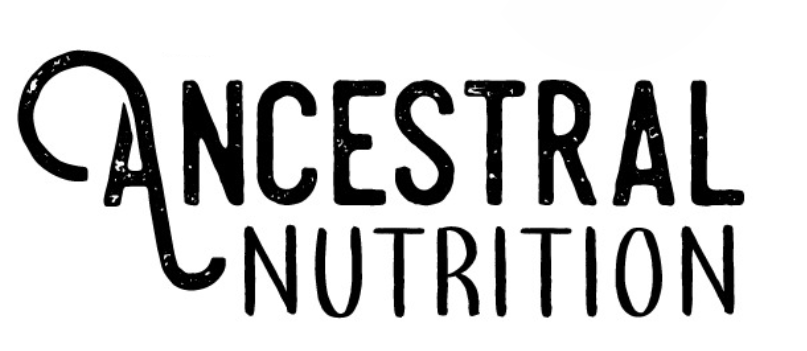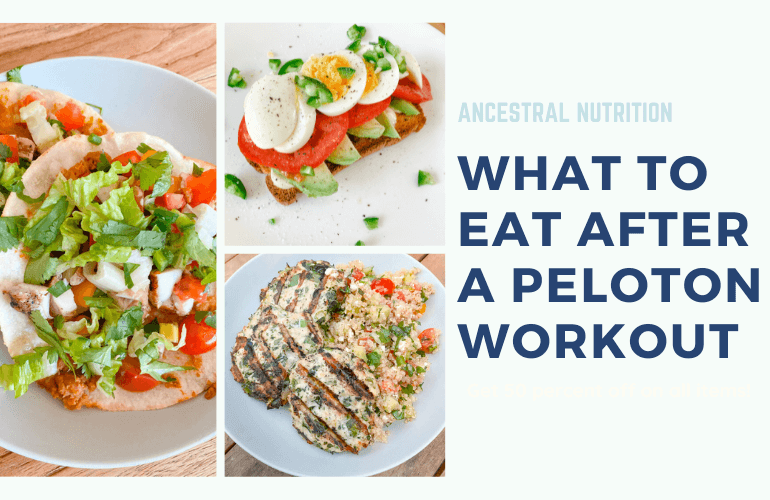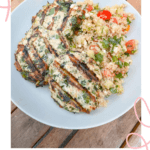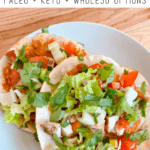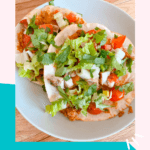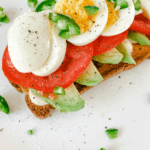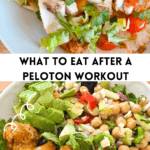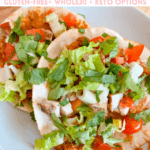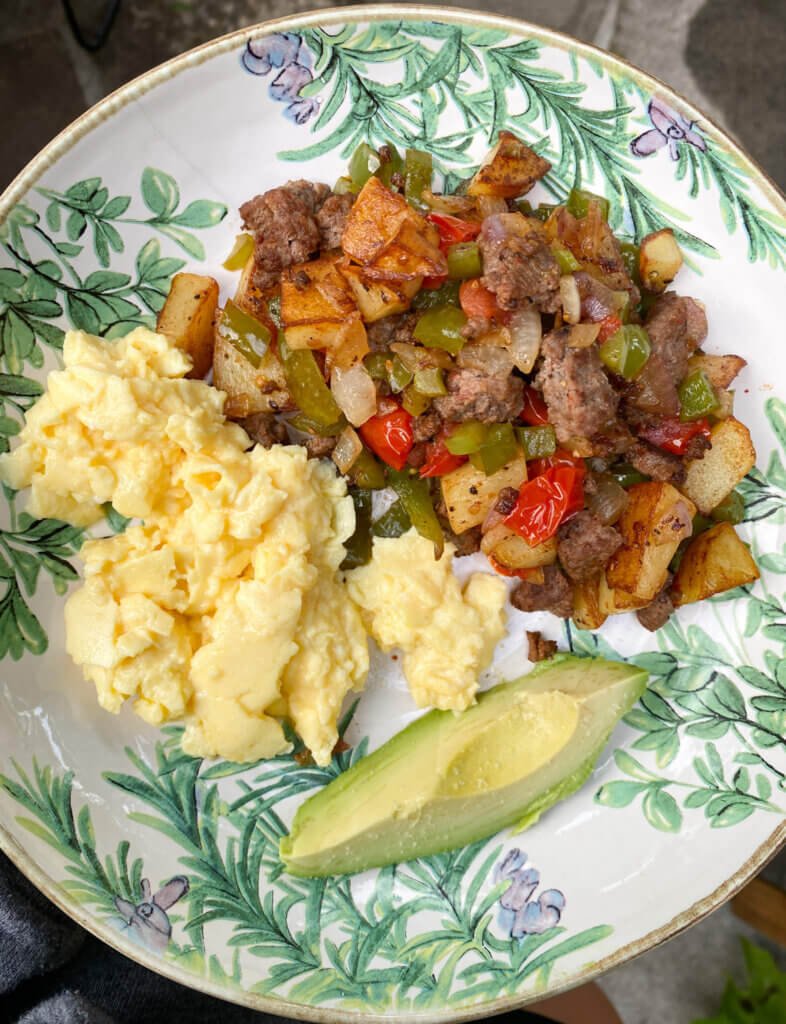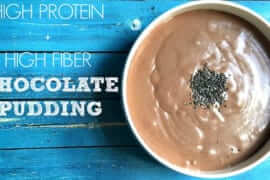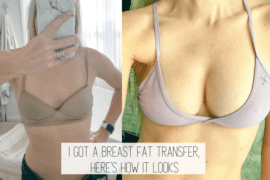I’ve joined the cult of Peloton, okay?! And I LOVE IT! Don’t judge me. This is what to eat after a Peloton workout – from a nutritionist and health coach.
Like so many people since the start of the pandemic, I bought a Peloton. I wanted to workout, I wanted my husband to workout, but I wasn’t comfortable going to gyms or yoga classes.
You guys, a Peloton is surprisingly cheap.
I also want to let everyone know that I didn’t shell out the few grand for a Peloton. I opted for a payment plan which makes the Peloton SO AFFORDABLE. I pay my Peloton off $50 a month with only an additional $100 in interest. That’s cheaper than a gym membership! It really, truly makes Peloton accessible to so many people. I really can’t recommend it enough.
Anyway, I normally workout around 6am. Before my kids wake up. It’s literally the only time I have to do it. My 2 and 4 year-olds don’t go to bed until 8pm. And last night I spent an hour cleaning the house after they went to bed. This is exactly why a Peloton works for me. It takes up 2×4 feet in our home office, we share it and it’s so damn easy to just hop on and sweat it out.
Okay I’m getting off topic.
First, let’s talk about what to eat after a Peloton workout.
What to eat will depend on your goals, your own bioindividuality and what type of workout you did. But the vast majority of post-workout meals should be similar: protein, fat, fiber and healthy carbohydrate (even if you’re keto; we’ll get to that).
Women should get 20-30g of protein per meal and men should get 30-40g per meal. Not just post workout meal, for every meal for optimal muscle formation, bone strength and neurotransmitter function. I am less concerned with the grams of fat and carbohydrate post-workout, although I do recommend keeping carbs on the lower side. We want to keep that blood sugar balanced, baby!
For each meal, focus on the core four:
The best, most nutrient dense and easily digestible forms of protein include:
- grass-fed ground beef
- wild seafood: salmon, sardines, oysters, mussels, clams, halibut, cod, etc.
- pasture raised chicken
- pasture raised eggs
- pasture raised pork
- pasture raised turkey
(If you can’t afford grass-fed, organic and pasture raised animals, just do the best you can.)
The healthiest fats include:
- olive oil
- avocados (NOT avocado oil, ready why HERE)
- grass-fed butter or ghee
- coconut oil
- nuts: walnuts, macadamia nuts, pistachios, almonds, etc.
- nuts butters (pecan is my favorite!)
Healthy, easily digestible carbohydrates that won’t spike your blood sugar when eaten with fiber, fat and protein include:
- potatoes (all kinds, even white!)
- quinoa
- gluten-free oatmeal
- white rice (read why I recommend white rice over brown HERE)
- squash
- beets
My favorite forms of added fiber include:
- avocado
- chia seeds
- flax seeds
- peas
- artichoke
- beans
Examples of actual meals to eat after a Peloton workout:
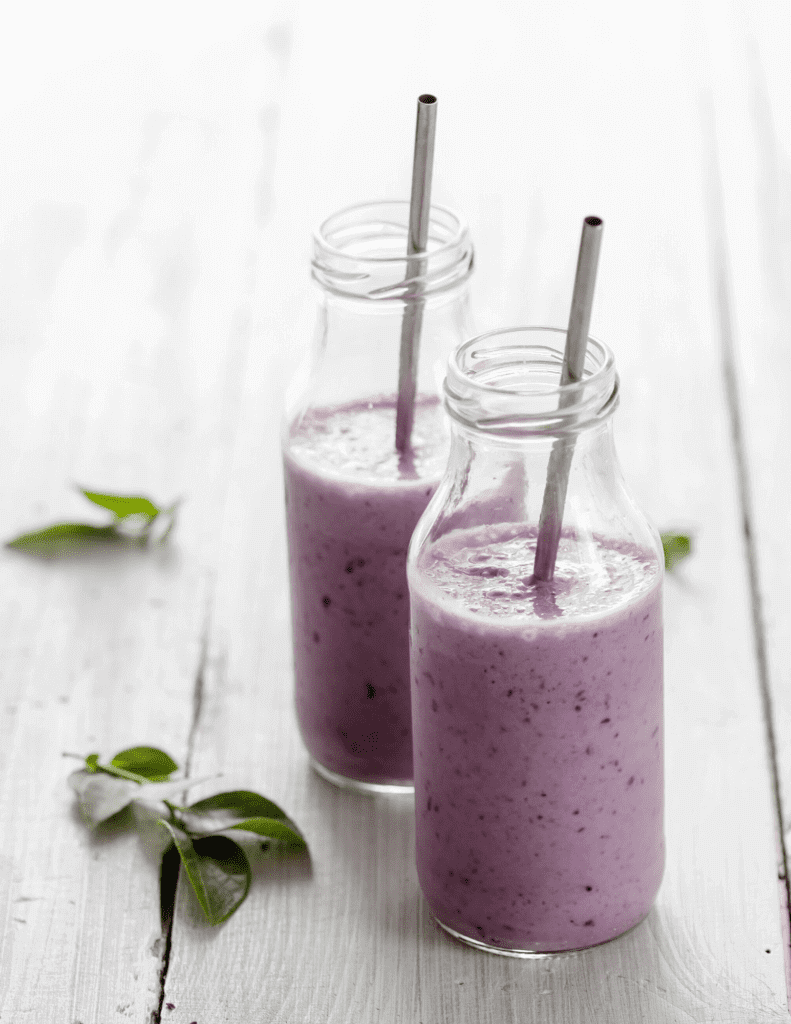
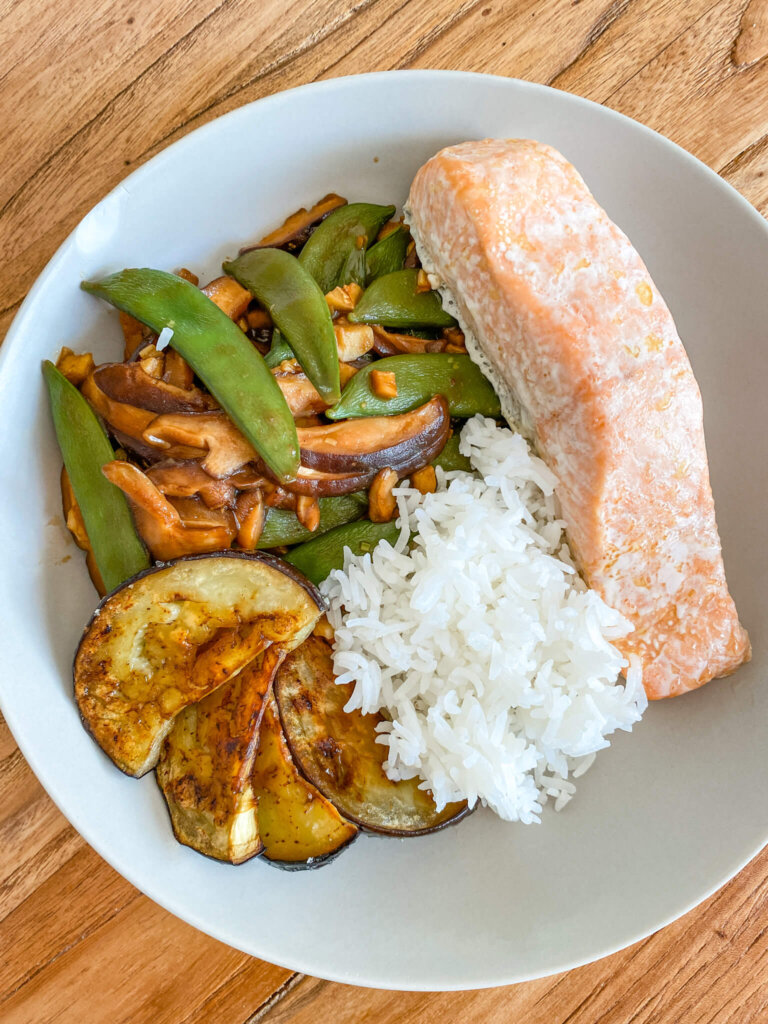
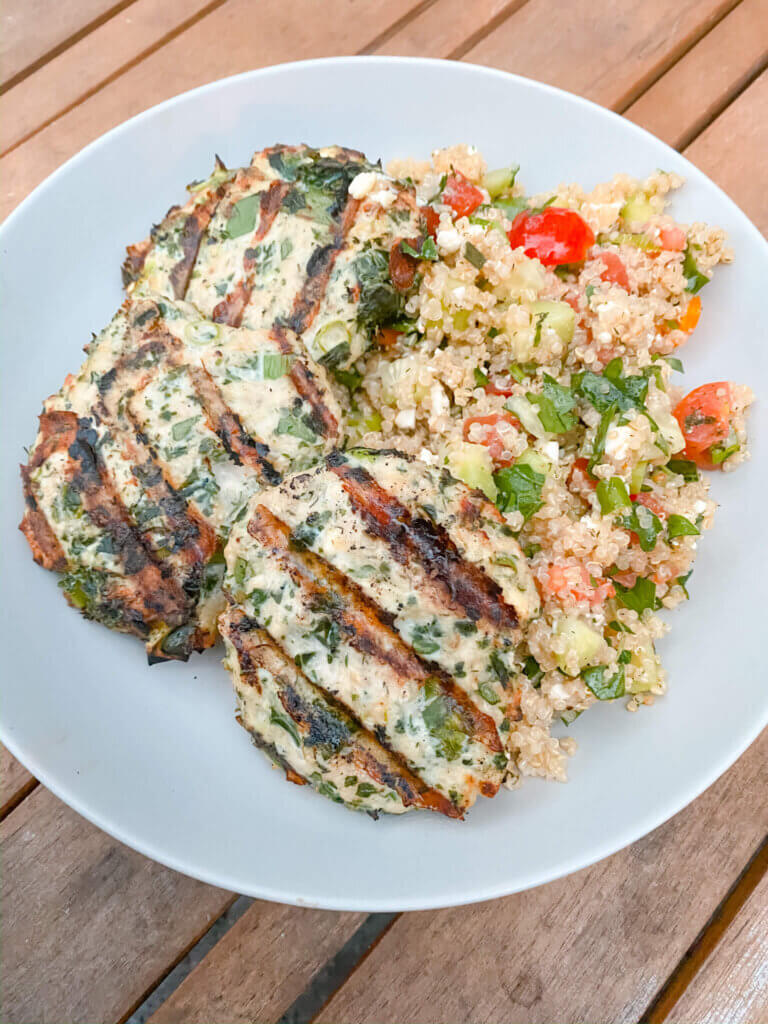
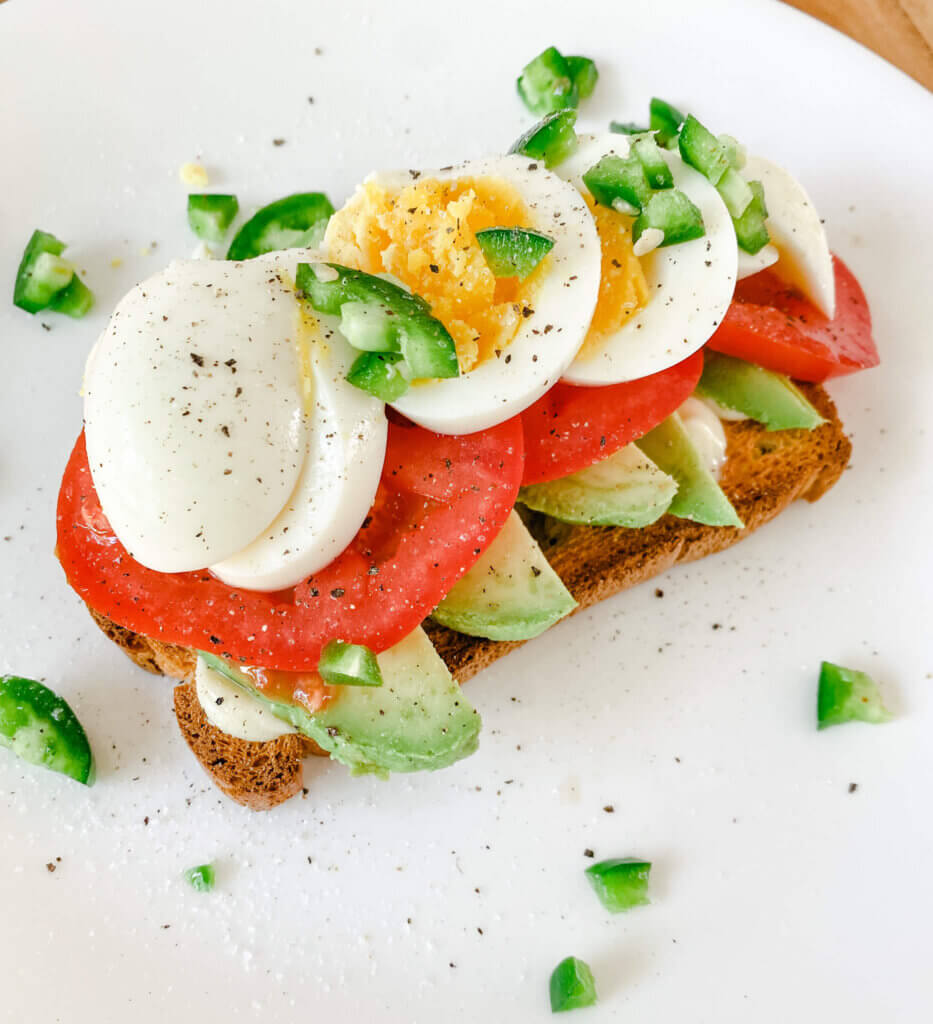
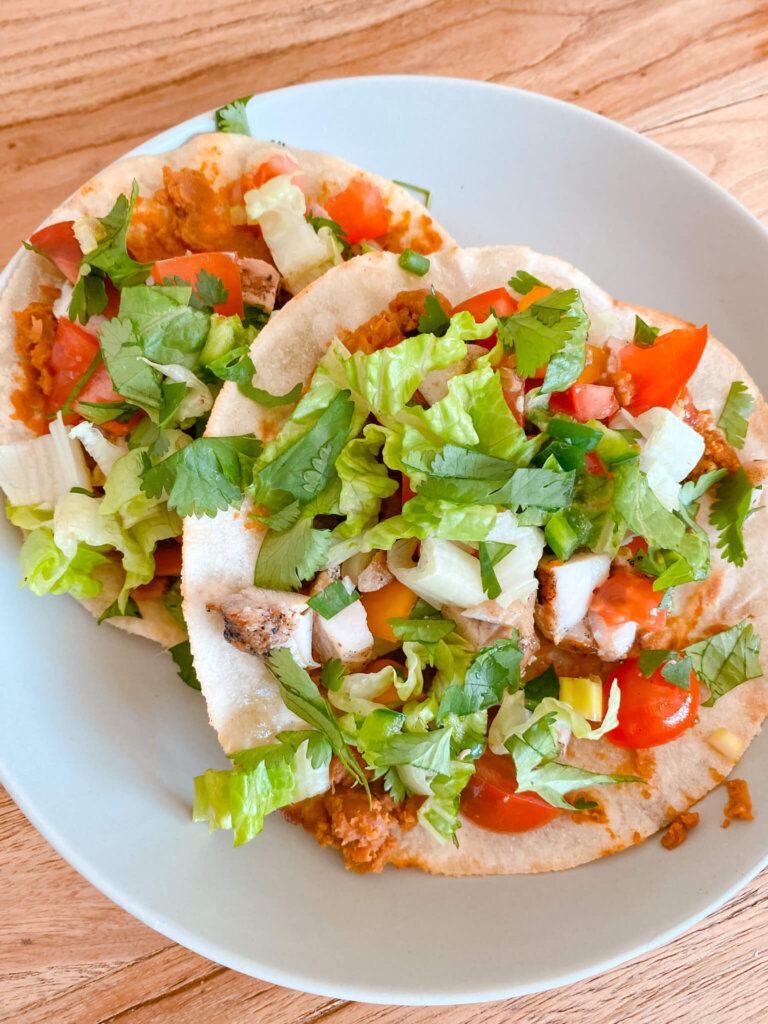
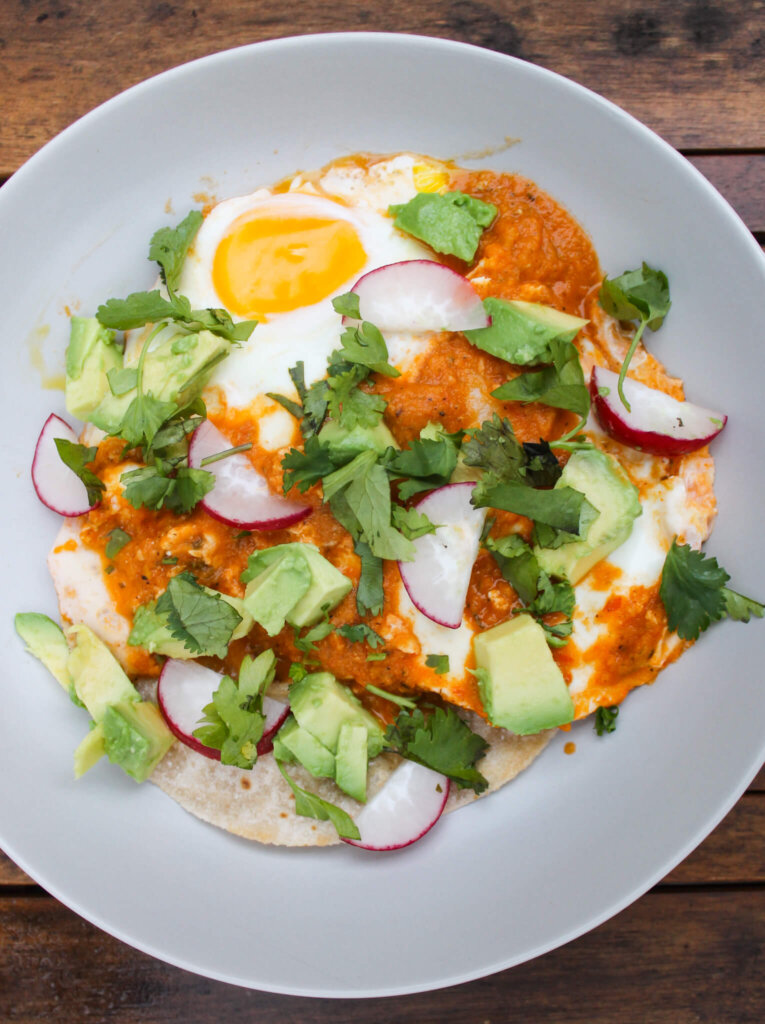
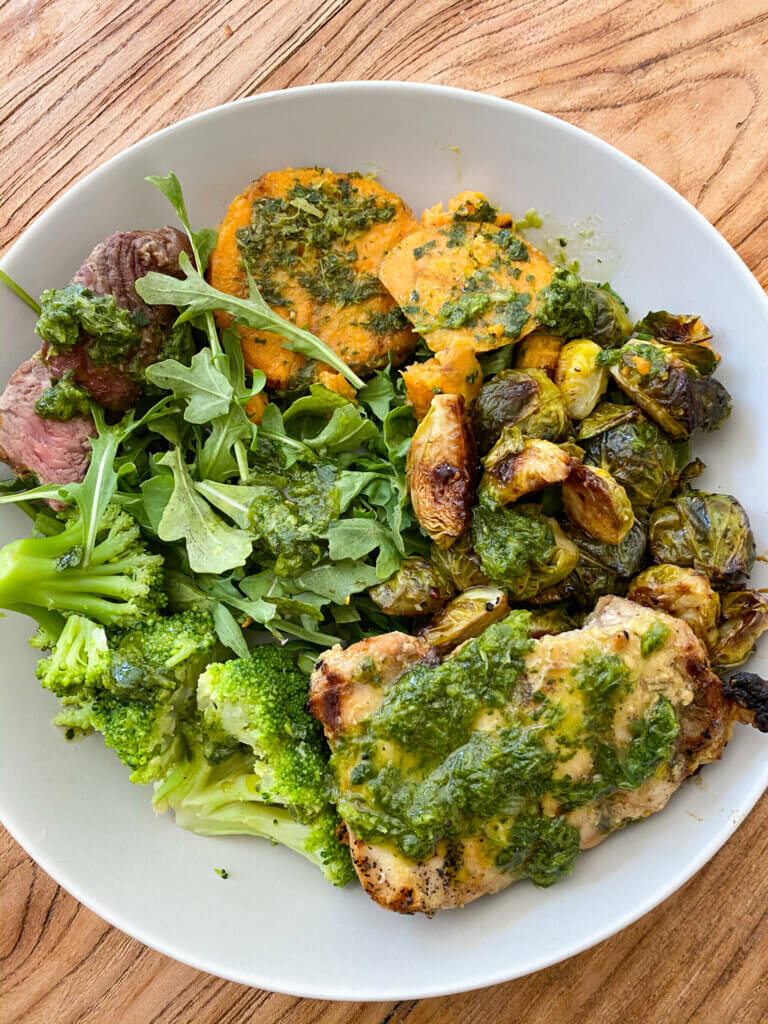
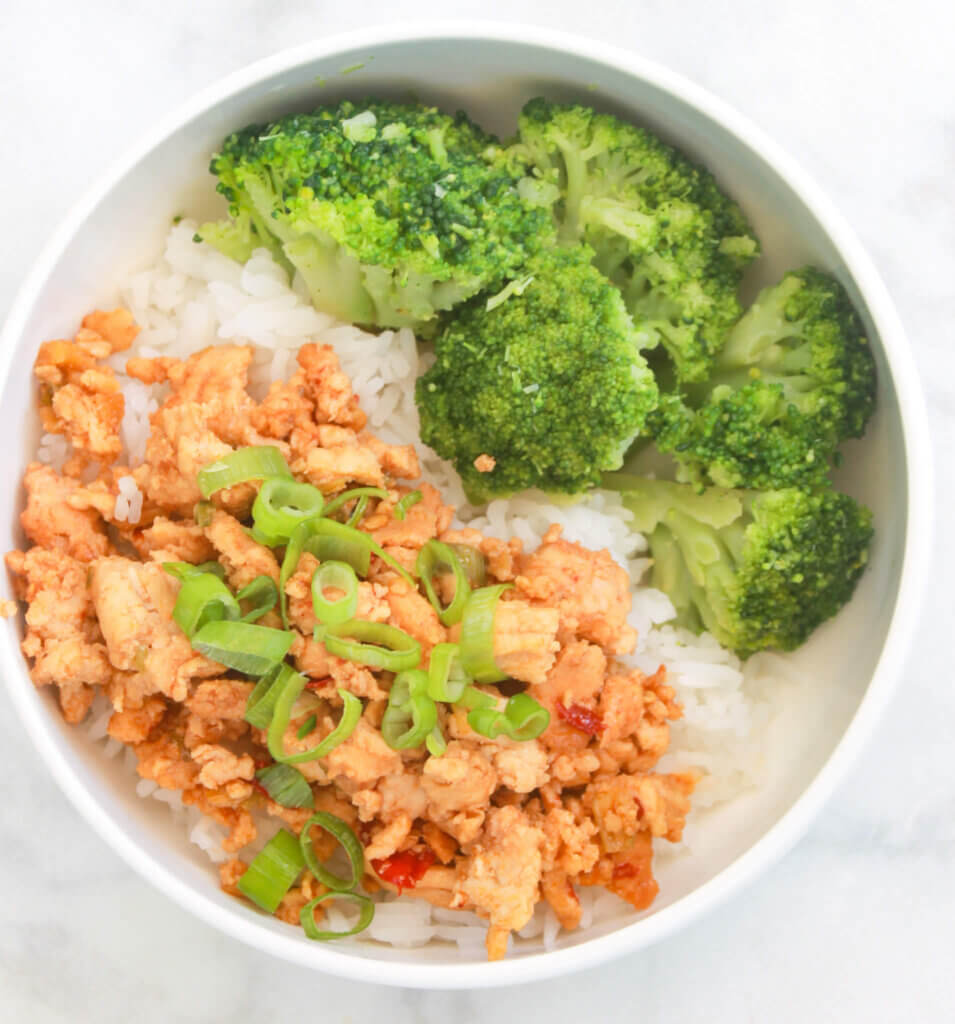
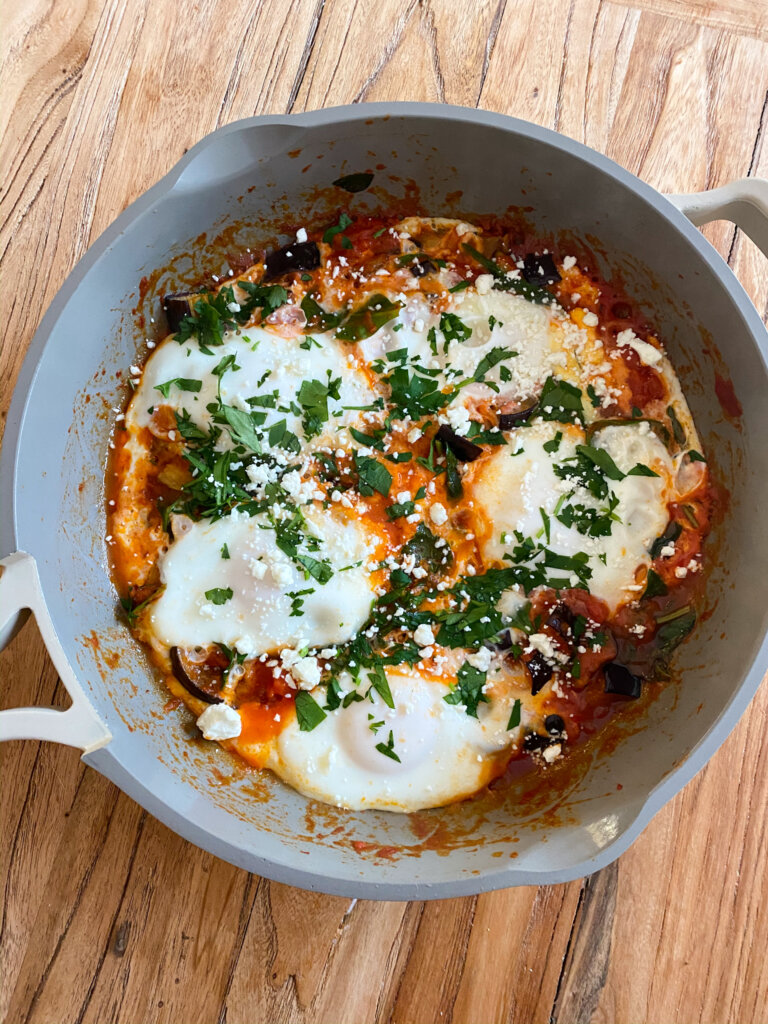
You can find a TON of recipes and meal ideas on my Instagram too!
How MUCH should I eat?
Here is where I am absolutely not a fan of calorie or carb counting. Eat enough to fuel YOUR body. If you’re hungry, EAT. If you’re full, STOP. If you can’t figure it out, I guarantee that once you switch to eating real, whole, nourishing foods – your cravings will normalize and you’ll be able to eat to satiety.
Like I said above, the only macro I pay much attention to is protein because it’s so crucial for so many processes within the body. I always aim for 20-30g per meal, while my husband’s meal contain 30-40g. This looks like about 3-4oz of protein for me, 4-5oz of protein for him.
The other macro I do like to keep in check is carbohydrate. Again, I don’t count carbs, but I do prefer to keep them low. This is because too much carbohydrate can spike your blood sugar. You want to make sure you’re eating enough carbs for your body, your hormones, your blood sugar and your hunger levels. If I eat no carbs, I’m hungry an hour later. If I eat too many, I’m bloated, tired and moody. Find what works for you.
Rather than sticking to eating X amount of calories or eating under X amount of carbs, I want you to focus on what I call core four: protein, fat, carb, fiber.
When should I workout?
This will be specific to you, your preferences, your schedule. I workout first thing in the morning and I prefer a fasted workout.
What about consuming protein within 30 minutes of a workout to build muscle?
If you’re doing a cycling workout, that’s cardio. You’re not going to build muscle without lifting weights. If you’ve just done a weighted or strength training workout via the Peloton classes (or any kind of strength training workout) and your goal is to build muscle then yes, it’s best to consume protein within 30 minutes of your workout. 3-4oz protein for women and 4-5oz for men is generally a good range.
Should I have a protein shake?
If you like them, find them satiating and they’re easy for you – by all means! I make my own collagen protein powder with super greens and most days consume a smoothie with my collagen. If your goal is to build muscle, you may want to look into a grass-fed whey protein powder. For most people, a collagen smoothie is an excellent post-workout option.
Benefits of collagen protein:
- collagen suppports gut health
- 80% of our skin is made up of collagen
- we make less and less collagen after age 25, which is why we start to see more wrinkles
- collagen is the most abundant protein in the body
- supplementing with collagen can reduce joint pain
- supports bones and cartilage
- reduces wrinkles and stretch marks
- by strengthening the gut, collagen also supports the brain and mood
What NOT to eat after a workout
We want to support our bodies with good, healthy, nourishing food. We want stable blood sugar. We want veggies to support our gut health, protein to support our muscles and neurotransmitters, healthy fat to support our brains and hearts, fiber for our gut and regularity.
We do not want nutrient-poor food that’s going to spike blood sugar. We don’t want to chug a bunch of coffee and eat refined carbs like pastries and cereal and bread. We also don’t watch sketchy protein shakes with seriously questionable ingredients (think: Herbalife, Plexus, BeachBody, etc. – I’ve reviewed a ton of them HERE).
What do you like to eat after a Peloton workout? Let me know in the comments!
